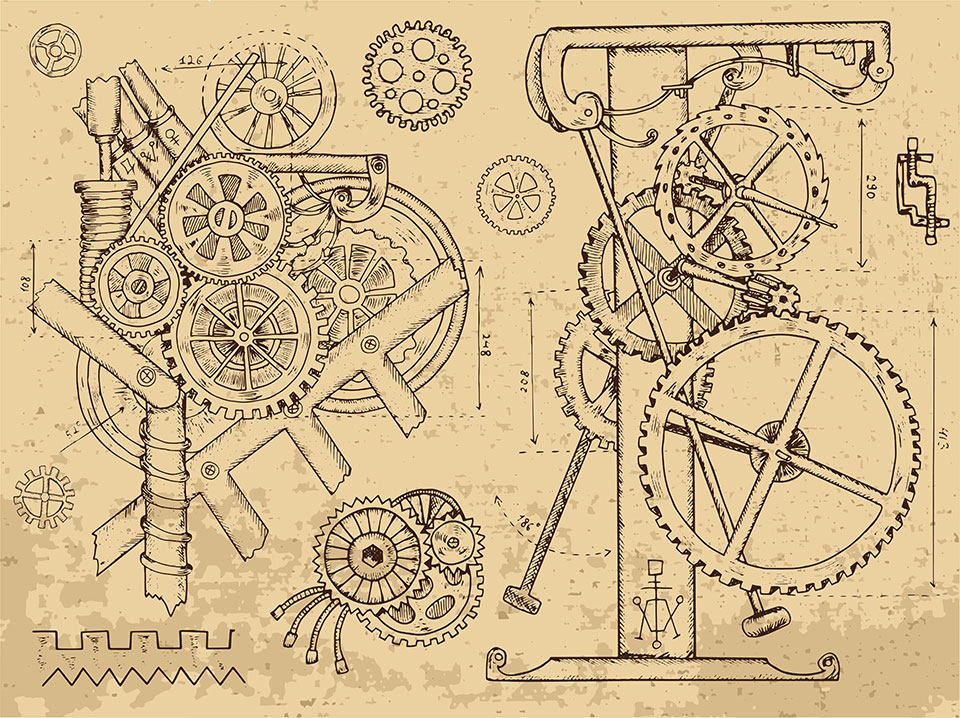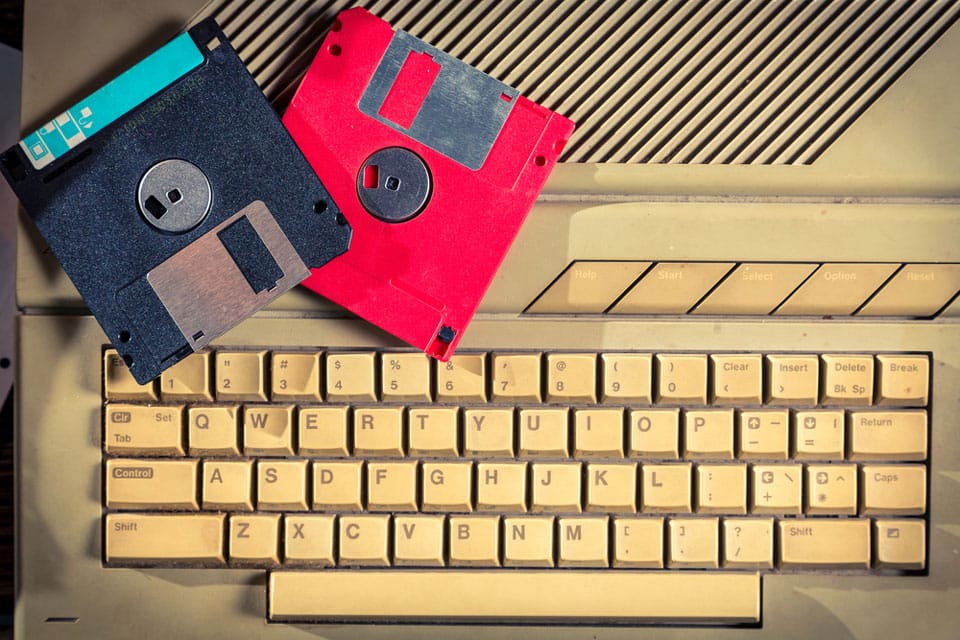5 Ancient Technologies That Still Get Used

All of the new technologies used stem from their ancestors. If we look back at stuff like wired telephones or floppy disks, we might feel weird, but this is how it all began. Some people still treasure and carefully keep all that old stuff in their homes.
Back then, technology didn’t advance as fast as it does now. So, people became accustomed to it and developed a deep connection with it. So, that is why some people still treasure it. We don’t realize that some new stuff we use still uses the same methods that were used back then. You might see a new tech, but the main layout is the same as the old ones.
Some organizations still use old technology because tracking and monitoring them is difficult. In this article, we will reveal surprising facts about old technology that is still used by many, and the device you use might also have that system.
Old Technologies, New Uses
There are several technological advances in use today that mimic people. Robots staff commercial production lines, and Google’s Waymo cab service, which employs self-driving cars, is also accessible. Many have begun to envision a gloomy tomorrow where robots will take over the globe, and you won’t have a job due to rising digitization. Some counter that loss of employment may only sometimes result from technology.
So-called obsolete inventions that have, at least temporarily, avoided elimination are standing peacefully in the middle of the discussion. We include a few of these ancient technologies that are still used today by some individuals working in various fields, perhaps even you.
- Floppy Disk
The development of compact disks and USBs didn’t make those rectangular plastic nuggets that stored software programs, documents, and other information obsolete. Many supporting technologies exist because much older equipment, notably expensive gear like aircraft and navy vessels, is still being utilized today.Floppy discs, for instance, are still used to keep and access data on the Boeing 747 jet. Floppy discs are still needed to keep these computers functioning because the programming that drives these jets is more ancient and out-of-date compared to what can be kept on more current storage mediums for data.
- Pagers
If you’re old enough to recall the pager, you might be delighted or embarrassed to learn they’re still used today. Several people still extensively depend on pagers daily despite the cellphone’s debut rendering them completely obsolete. Their origins are in the 1950s, but they rose to fame in the following decades.Medics, physicians, rescue workers, and even sure bird watchers in nations like the UK are some of the most noteworthy users. But what is the reason?
Simply because of their battery performance. Even though modern gadgets like cell phones are far more capable, they have terrible battery life compared to the pager’s comparatively basic technology. Pagers are excellent for places where they might endure a lot of beatings because they can withstand far more damage.
They are also ideal for elderly persons who find it challenging to master cutting-edge technology like cell phones physically and symbolically. Paging methods incorporate FM radio frequencies to transmit messages rather than a cellphone tower, making them more dependable in places where WiFi or cellular services could be patchy or absent, especially in remote regions.
- Fax Machines
Many employees believed that the whirling and humming of the fax machine was a distant memory due to increased computer technologies and immediate information availability. Nevertheless, it is only sometimes the case, particularly in hospitals.Even though there are digital health logging systems and many medical practitioners are attempting to put the whole of their patient records digitally, the electronic medical record market still has a lot of unmet needs.
Many healthcare facilities and physicians’ workplaces still use fax machines to transfer patient records from one spot to the next. It’s because funding levels could be higher than what is needed to transform entirely to digital. Management teams are uncomfortable with making all patient content accessible digitally, or computer networks are simply incompatible between different facilities.
- QWERTY Keyboards
Although there are multiple keyboard arrangements, the QWERTY keyboard gets used by most individuals. The QWERTY arrangement’s roots are the subject of many urban legends, yet based on the Smithsonian Magazine, we may be sure that it originally appeared in print in 1878. As soon as the biggest typewriter companies consolidated and implemented it on their machines, it quickly became the norm.Most of you employ a QWERTY keyboard at the workplace and even in your daily routine, and we can reasonably assume that. Nonetheless, you can learn about creating unique keyboard arrangements for Windows if you decide to reconfigure your keyboard for a specific purpose.
- Windows XP
The world has seen numerous variations of Windows, yet Windows XP is still alive and kicking. The news that the HMS Queen Elizabeth, a British cruiser, used Windows XP in 2017 set the world wide web ablaze. This was swiftly refuted in a UK Defense Journal piece. In 2019, Windows XP made headlines again as outlets picked up on a report from a Russian website claiming that Vladimir Putin still uses the antiquated operating system.If you consider that Windows XP is almost 20 years old and that premium support for it ceased in 2014, you might speculate why specific individuals still favor it. Although Microsoft’s most well-known operating systems might pique the younger generation’s interest, Windows XP is guaranteed to evoke some nostalgic sentiments.
If you’re one among them, consider reviewing Windows XP’s features, enhancements, and other characteristics. Alternatively, you can go beyond and discover how to get Windows XP for free.
- Vinyl Records
Throughout the past several decades, how people experience and listen to music has significantly transformed from squeaky phonographs to crystal-clear digital files. While many younger audiences appreciate the simplicity and precision of hearing songs instantly, vinyl albums have grown in popularity lately.Records have developed into more than just shelf-sitting collectibles. These days, many music lovers choose to enjoy songs on highly coveted, valuable instruments. The vinyl distribution of albums by contemporary musicians like Taylor Swift satisfies a niche in the marketplace.
- Magnetic Stripe Cards
For many years, using a bank card required a machine to swipe the card’s magnetic strip. The software logged the card’s credentials, which linked a transaction to the appropriate account on the card. With today’s mobile payment methods, customers can tap a wristwatch to a detector or open an application on their mobile devices. That scanner charges the appropriate person’s account, performing the same task as a card’s magnetic stripe.Many customers still like using antiquated magnetic stripe cards to finish their payments. These credit cards are the most common means of payment for consumers who don’t pay with cash because many local establishments’ software has yet to keep up with the most current payment methods.
Technology is advancing every day. You can now trade your cryptocurrency using trading bots like the bitcoin buyer. But some people and organizations still need to become more accustomed to using the old technology methods.
Technology is not quickly rendered outdated. When that happens, you might experience nostalgia, but you can also anticipate fascinating technological advancements. Consider how advances in immersive virtual worlds, artificial intelligence, and other upcoming technologies could affect work and daily life. New duties and improved procedures might only sometimes replace lost jobs, but they might. Enjoy utilizing your cherished technology for the time being, then.
Have you read?
The world’s top 20 most travel-obsessed countries, 2023.
The most Twitter-obsessed countries revealed, 2023.
The world’s top 10 most popular luxury brands for 2023.
The most fast food-obsessed countries in the world, 2023.
Who Are the Richest Sports Owners in the World, 2023?
Add CEOWORLD magazine to your Google News feed.
Follow CEOWORLD magazine headlines on: Google News, LinkedIn, Twitter, and Facebook.
Copyright 2024 The CEOWORLD magazine. All rights reserved. This material (and any extract from it) must not be copied, redistributed or placed on any website, without CEOWORLD magazine' prior written consent. For media queries, please contact: info@ceoworld.biz









